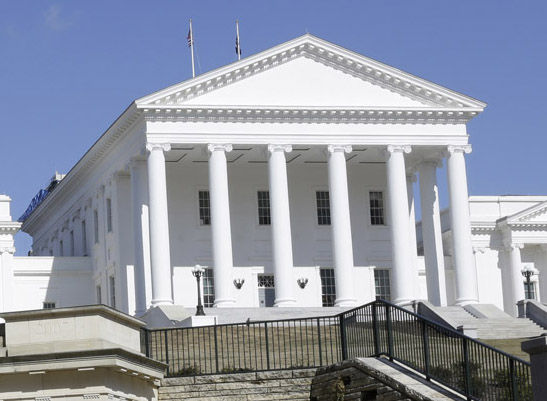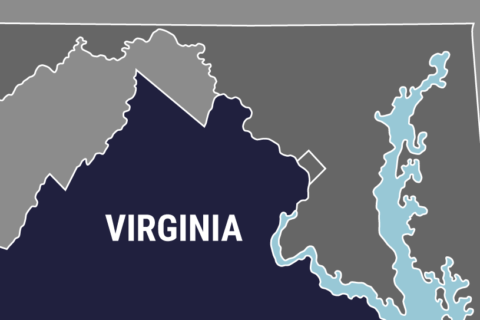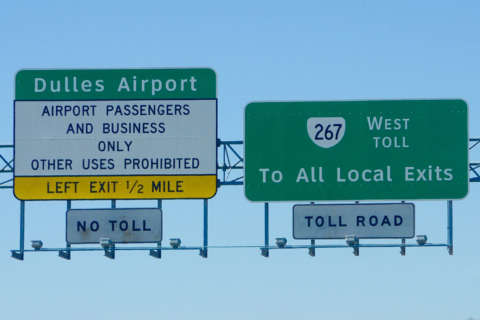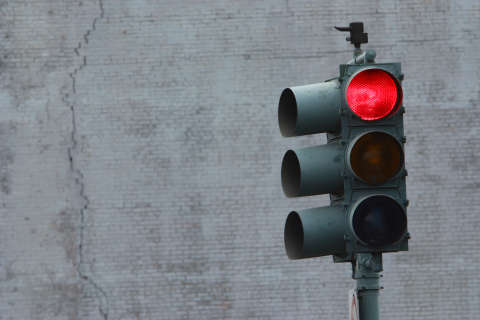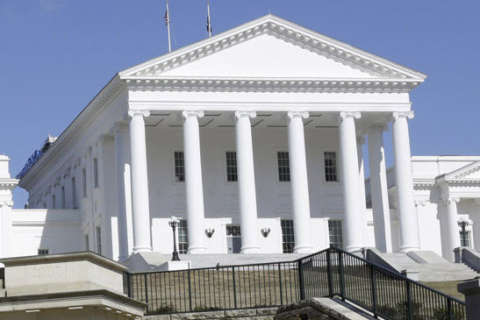
WASHINGTON — From a potential ban on hand-held cellphones behind the wheel to proposals to widen Interstate 95 and lock in toll increases for the Dulles Greenway, Virginia’s breakneck General Assembly session could mean some changes to how we get around.
Efforts to ban or significantly restrict cellphone use behind the wheel fell just short of passage last year, and have been reintroduced this year. The session starts Wednesday, and bills must pass in at least one chamber within three weeks in order to have a chance at becoming law. The session is scheduled to end by Feb. 23.
Several Northern Virginia lawmakers have introduced bills to study adding an additional lane to Interstate 95 in each direction from Thornburg to Springfield, a change that would likely trigger payments by the state to the private operators of the 95 Express Lanes. A related bill would ask for a study of possible tolls or additional gas taxes to pay for that or other improvements along the corridor, which could also include widening Route 1.
Other proposals are expected to restore funding for local projects in Northern Virginia after money was shifted around last year to cover Metro costs.
Meanwhile, Dulles Greenway tolls are expected to be a particular focus of Loudoun County lawmakers, as the toll road’s operators and some legislators aim to lock in the level of long-term rate increases in exchange for offering limited distance-based tolling.
Separate proposals tied to the Dulles Toll Road push for HOV access to the eastbound lanes of the Dulles Access Road or for a special jet fuel tax on United Airlines to slightly offset future Dulles Toll Road rate increases.
Tickets and licenses
Loudoun, Fairfax and other large counties would also find it easier to issue parking tickets under another bill that authorizes law enforcement or other uniformed county or town workers to write tickets.
Loudoun County also hopes to have a bill introduced that allows traffic incident management vehicles that respond to help clear crashes, but are not police or first responders, to be able to use lights and sirens so that crashes can be cleared more quickly.
A bill has been introduced that would require drivers in crashes along the toll lane construction on Interstate 66 between the Beltway and Gainesville move cars to the nearest pull-off area if no one is seriously hurt. The construction has eliminated the shoulder in much of the corridor for the next four years.
A number of changes are proposed for driver’s licenses, including the repeal of rules requiring licenses be suspended for a failure to pay court fines or fees, and the elimination of interest charged for fines or costs tied to traffic infractions. There is also a proposal to allow drivers privilege cards for people who are not U.S. citizens. Another bill would eliminate a service charge for in-person DMV transactions.
Other proposals would ban car insurers from denying coverage to foster parents or foster children, require drivers pay attention and exercise due care to avoid collisions and remove a requirement in auto sales that it be noted that the car has been used as a taxicab.
Scooters and school buses
For non-drivers, there is a bill that would permit electric scooters and similar devices on sidewalks. Bikes are already generally allowed.
People on motorcycles could also no longer be required to wear a helmet if they are 21 or older and an organ donor.
Going the other way on safety, there is a proposal to require all new school buses have seat belts for students, and to expand the ban on smoking in a car to cover all minors; the current law applies to children under 8. That bill would also make smoking with kids in the car a primary offense, which means an officer could pull a driver over for it.
Other bills would double the penalty for passing a stopped school bus from $250 to $500, set a statewide towing fee of $150 rather than the patchwork of fees currently in place, provide for flexibility on old criminal history for tow truck drivers and increase maximum fees for vehicle inspections by $3 for motorcycles and $9 for cars.
As always, lawmakers have also introduced a number of bills that would create special license plates for certain groups. This year, those range from the Rocky Mountain Elk Foundation and Virginia State Parks to those who earned a Navy and Marine Corps Medal, former members of the General Assembly and supporters of teachers.

